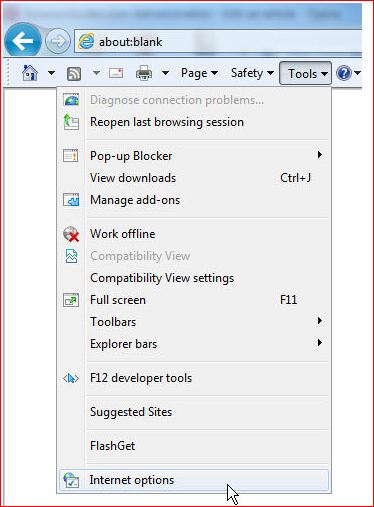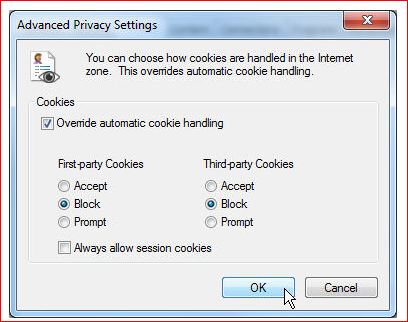- Details
- Category: Tech Tech
- Hits: 7250 7250
Revealing the “Skinny” on Cookies
Here’s the “skinny” on computer cookies (aka browser cookies). Let’s Talk Cookies
 If the first thing that comes to mind when you think of cookies is the chocolate chip you aren't alone. Even among many well versed in the use of computers and the internet aren't familiar with the computer kind of cookies. Essentially they're little tiny bits of information passed from a website to your browser and stored there while you are checking out whatever site has your attention at the moment. Then whenever you pass that way again the website can retrieve that information and access it.
If the first thing that comes to mind when you think of cookies is the chocolate chip you aren't alone. Even among many well versed in the use of computers and the internet aren't familiar with the computer kind of cookies. Essentially they're little tiny bits of information passed from a website to your browser and stored there while you are checking out whatever site has your attention at the moment. Then whenever you pass that way again the website can retrieve that information and access it.
Computer Cookies: Pros
In its more benevolent form and the form for which it was originally intended it helped business owners, consumers, and websites’ proprietors help and better serve their customer. For example, let’s say you own a department store and a customer drops by your website to do a little shopping. The website will send out the cookies to that customer’s browser and record their habits, preferences, favored items, and keep track of what products you had in your online shopping basket when the phone rang and your attention was diverted. That way your website and thus your business can better serve the customer. If they purchased a raincoat in the past the cookies will allow your website to make other suggestions that might be helpful to the customer, easing and streamlining their shopping experience. It's easy to see how that could be very beneficial to your customer/business relationship and provide a great deal of convenience to both of you.
Cons on Computer Cookies
On the darker side of things, that very ability to record information and store it for future reference has come to represent a definite risk to user privacy. It can represent an annoying inconvenience at best when you are suddenly getting bombarded by pop up ad spam from every which way and you have no idea how they got your information, and it can represent a downright danger at worst when you get targeted for identity theft and other criminal activities.
For that reason, in recent years lawmakers have begun to take a closer look at preparing legislation to curb or mediate the negative effects of these cookies and to see if there is anything that can be done to form a compromise that can both help business owners, yet protect the privacy of the users.
In short, cookies can become either a very helpful boon or an outright nightmare depending on the use to which they're put. In the words of fictional character Spiderman, “With great power comes great responsibility.
One way in which you can protect yourself is to stay active with general maintenance and regularly purge your system of cookies, but it's sort of like raking leaves. You can get rid of them but they'll just pile right back up again.
So it's a continuing cycle like brushing your teeth or flossing. I suggest building a computer hygiene habit of visiting your favorite browsers “options” section or “privacy” section and choosing to “clear history and cookies on a regular basis.
As long as you are aware of their potential for help or hindrance you are in a position to make more informed and better decisions for your business website, for your personal browser use and your customers.
The major Internet browsers tend to put the cookies settings and how to control the cookies several levels deep in your settings. For example, Internet Explorer will take you on a trip through Tools > Internet Applications > Privacy> Settings. Cookies are all about your privacy and how much privacy you are willing to abandon.
How to turn off Cookies in Internet Explorer
To disable cookies in Internet Explorer browser, the first step is to access the "Tools" option (or the button with the gear icon in newer versions), then click on "Internet options".

Go to the "Privacy" tab and then click the "Advanced" button
The final step is to check the "Override automatic cookie handling" option, then disable all cookies: select "Block" on "First-party Cookies", select "Block" on "Third-party Cookies", and un-check "Always allow session cookies".

